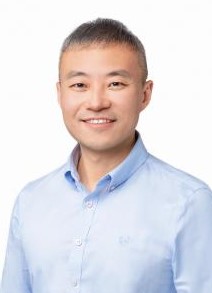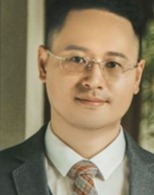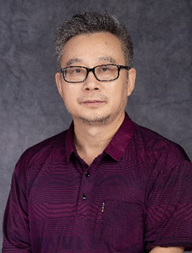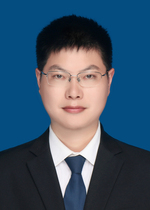
SPEAKERS |
Prof. Han Huang South China University of Technology, China | Bio: Dr. Huang is a professor and doctoral supervisor of the School of Software Engineering at South China University of Technology. He is currently serving as an associate editor of IEEE Transactions on Evolutionary Computation (IF: 14.3), Complex & Intelligent Systems (IF: 5.8) and IEEE Transactions on Emerging Topics in Computational Intelligence (IF: 5.3), and Director of Teaching Steering Committee for Software Engineering of Undergraduate Colleges and Universities in Guangdong Province. Prof. Huang has made great contributions to the scholarship on the theories and application of intelligent optimization algorithms. For example, he has proposed a time complexity analysis method of real-world evolutionary algorithms, algorithms for efficient and accurate image matting, a method for automated test case generation based on path coverage, etc. Prof. Huang has hosted more than twenty national and provincial projects. He has published two books, Theory and Practice of Intelligent algorithm and Theory, Methods and Tools for Time Complexity Analysis of Evolutionary Algorithm. He has also published more than 80 papers in IEEE TCYB, IEEE TETC, IEEE TSE, IEEE TEVC, IEEE TIP, IEEE TFS, and Science China, including ESI highly cited papers. As the first inventor, Prof. Huang has 44 invention patents granted in China and seven invention patents granted in the United States. He won China Patent Excellence Award and developed an association standard entitled “Standard for glass-box testing without source code” as the first completer. Additionally, Prof. Huang pays attention to social services. Over the past five years, he has given more than 50 public lectures on science and technology for government offices, primary and secondary schools, CCF, YOCSEF, media, etc. He has been in charge of the development and release of six public software systems such as Unit Test Algorithm Platform www.unittestpc.com.cn, Automatic Structural Equation Modeling System www.autosem.net, Evolutionary Algorithm Time Complexity Analysis System www.eatimecomplexity.net, and Energy Storage Optimization System http://energystorage.autosem.net, which have provided free technical service and support for lots of researchers and engineers. Title:Micro-scale searching algorithm and its application Abstract: Intelligent optimization algorithm is an important artificial intelligence method which is often used to solve complex black-box optimization problems. From the perspective of the nature of algorithm performance, this report will describe the fundamental reasons and key points of algorithm performance improvement. It will introduce the idea of micro-scale searching algorithm: By determining the effective decision subset of optimization problems, adjust the reasonable allocation of computational resources and achieve effective search in a small space, thus obtaining the optimal solution or high-quality feasible solution of the problem. Based on this algorithmic idea, The report will analyze the micro-scale searching assumptions and performance nature of intelligent optimization algorithms such as genetic algorithm (GA), particle swarm optimization (PSO), differential evolution (DE), ant colony optimization (ACO). It will also summarize and discuss the pitfalls of analyzing performance of evolutionary computing methods. Finally, this report will introduce the applications of micro-scale searching algorithm ideas in industrial software, software engineering, computer vision, digital logistics, etc. |
Assoc. Prof. Ran Cheng Northeastern University, China | Bio: Ran Cheng received the B.Sc. degree from Northeastern University, Shenyang, China, in 2010, and the Ph.D. degree from the University of Surrey, Guildford, U.K., in 2016. He is currently an Associate Professor with the Department of Computer Science and Engineering, Southern University of Science and Technology, China. His research interests mainly fall into the interdisciplinary fields across evolutionary computation and other major AI branches such as statistical learning and deep learning, aiming to provide end-to-end solutions to optimization/modeling problems in scientific research and engineering applications.He is a recipient of the 2019 IEEE Computational Intelligence Society Outstanding Ph.D. Dissertation Award, the 2018 and 2021 IEEE TRANSACTIONS ON EVOLUTIONARY COMPUTATION Outstanding Paper Awards, and the 2020 IEEE Computational Intelligence Magazine Outstanding Paper Award. He serves as Associate Editors of the IEEE TRANSACTIONS ON EVOLUTIONARY COMPUTATION, the IEEE TRANSACTIONS ON ARTIFICIAL INTELLIGENCE, and the IEEE TRANSACTIONS ON COGNITIVE AND DEVELOPMENTAL SYSTEMS. He is the Chair of IEEE Computational Intelligence Society Shenzhen Chapter. |
Prof. Wei Cui South China University of Technology, China | Bio: Wei Cui (Senior Member, IEEE) received the Ph.D. degree in control science and engineering from the Academy of Mathematics and Systems Science, Chinese Academy of Sciences, Beijing, China, in 2011. From 2011 to 2015, he was a Foreign Postdoctoral Researcher with the Institute of Physics and Chemical Research (Riken), Wako, Japan. He was a Visiting Scholar with the University of Turku, Turku, Finland, and the University of New South Wales (ADFA), Canberra, ACT, Australia, in 2010 and 2015, respectively. He is currently a Professor with the School of Automation Science and Engineering, South China University of Technology, Guangzhou, China. His current research interests include quantum artificial intelligence and blockchain technology.Prof. Cui received the Excellent Prize of President Scholarship from the Chinese Academy of Sciences in 2011. He is a Young Editor of Control Theory and Technology. |
Prof. Daowen QIu Sun Yat-sen University, China | Bio: Daowen Qiu received the M.S. degree from Jiangxi Normal University, Nachang, China, in 1993 and the Ph.D. degree from Sun Yat-Sen University, Guangzhou, China, in 2000, both in mathematics.,During 2000 and 2001, he was a Postdoctoral Researcher in computer science with Tsinghua University, Beijing, China. Since August 2002, he has been associated with Sun Yat-Sen University, and then a Full Professor of computer science in May 2004. His current research interests include quantum computing, discrete event systems, fuzzy and probabilistic computation, and he has focused on models of quantum and probabilistic computation, quantum information. He is the author or co-author of more than 160 peer-review papers published in various academic journals and conferences, including Information and Computation, Artificial Intelligence, Journal of Computer and System Sciences, Theoretical Computer Science, IEEE Transactions on Automatic Control, IEEE Transactions on Systems, Man, and Cybernetics Part B, IEEE Transactions on Fuzzy Systems, Physical Review A, Quantum Information and Computation, Journal of Physics A, and Science in China. He is an editor of the journal Theoretical Computer Science. |
Prof. Bo Jiang Anhui University, China | Bio: Bo Jiang received the B.S. degree in mathematics and applied mathematics and the M.Eng. and Ph.D. degrees in computer science from Anhui University, Hefei, China, in 2009, 2012, and 2015, respectively.,He is currently an Associate Professor in computer science at Anhui University. He has published more than 100 articles including more than 30 papers in top conference and journal such as Computer Vision and Pattern Recognition Conference (CVPR), Conference on Neural Information Processing Systems (NeurIPS), International Journal of Computer Vision (IJCV), IEEE Transactions on Pattern Analysis and Machine Intelligence (TPAMI), IEEE Transactions on Image Processing (TIP), and IEEE Transactions on Neural Networks and Learning Systems (TNNLS). He gained some research projects of NSFC and Natural Science Foundation of Anhui Province. His research interests include image matching, graph data representation and learning, and few-shot learning.,Dr. Jiang received the Rising Star Award of ACM Hefei. |




